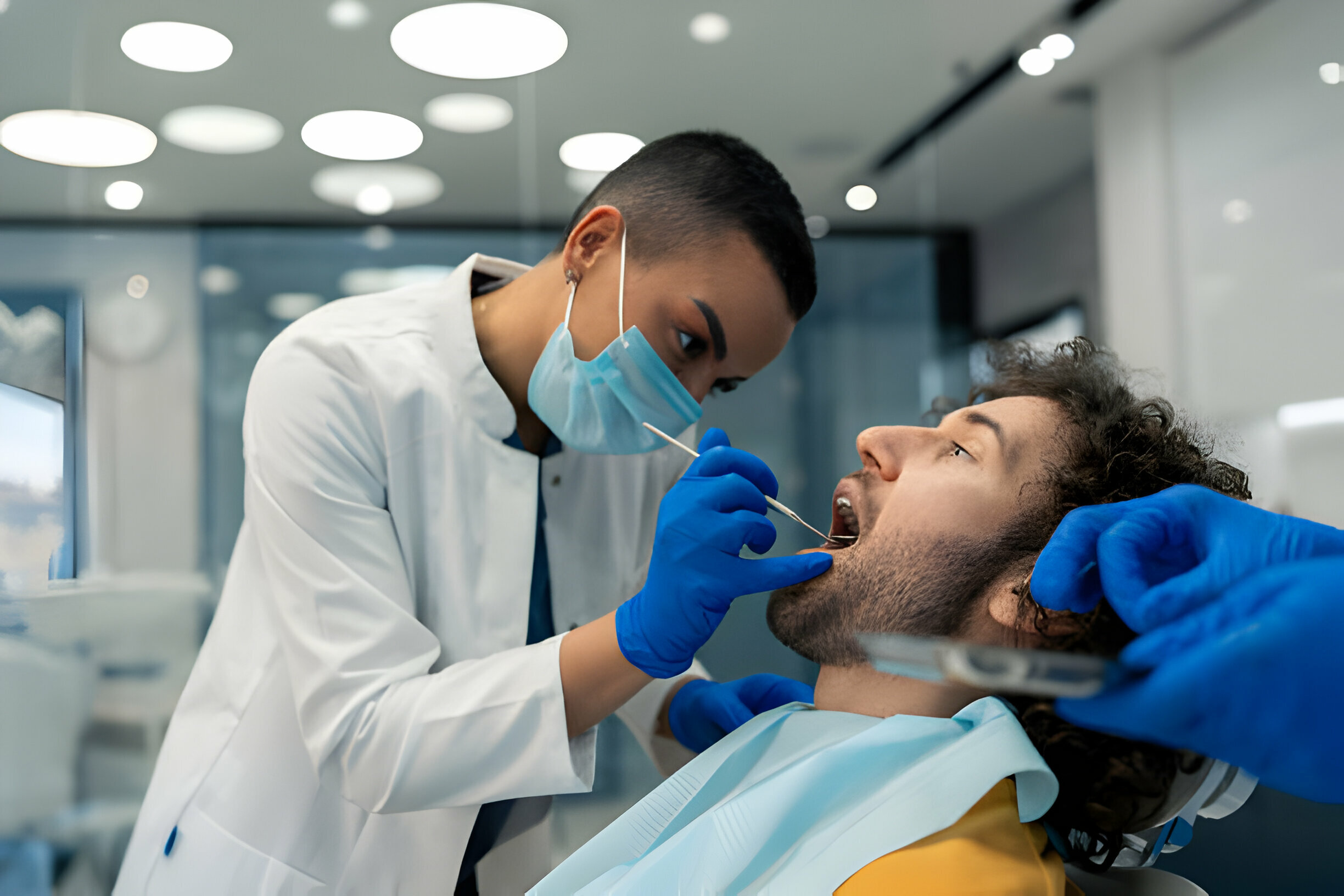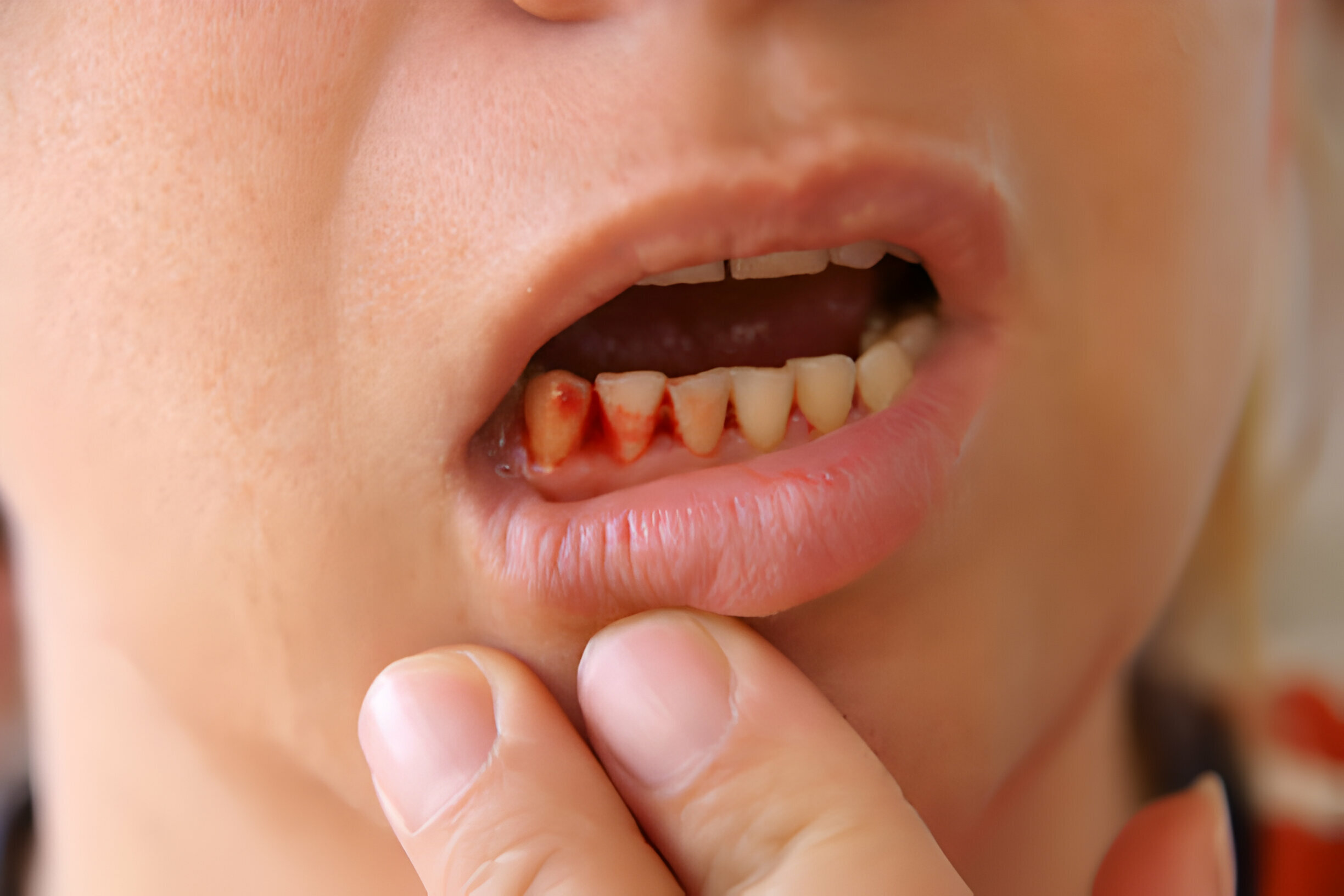Summary
Did you know? Nearly 2 million individuals visit hospital emergency departments.
We often overlook dental emergencies as most people think they aren’t dangerous.
However, that’s where you might be wrong! When left unattended, dental emergencies can harm your overall health. Sadly, most people have a limited idea of what counts as a dental emergency.

Keeping the same in mind, this blog closely examines emergency oral care signs you shouldn’t ignore. We understand topics like:
- Signs of Emergency Dental Issues
- 5 Signs that Shout ‘Dental Emergency’
- Tips to Navigate Through Dental Emergency
Let’s learn more about these emergencies in the following sections.
Signs of Emergency Dental Issues
Several indicators may suggest an oral emergency. For instance, if you have a knocked-out, broken, or fractured tooth or are experiencing significant pain in your mouth, you should seek expert medical assistance immediately.
However, not every inconvenience has to be a dental emergency! Before you visit your emergency dentist in Aubrey, TX, you must understand that not every symptom requires immediate assistance.
There are several signs of a dental emergency. In the following section, we will learn more about them.
5 Signs that Shout ‘Dental Emergency’
1. You’ve cracked a tooth
A shattered or fractured tooth isn’t only a cosmetic concern! The break might expose your tooth roots and allow bacteria into your teeth.
It’s always better to consult your dentist in such instances. They can help repair damaged teeth by reattaching the broken piece of enamel using dental bonding or a crown. Prompt treatment can help relieve your discomfort while preserving your tooth from illness or loss.
Tip: Avoid chewing on non-food things like pen caps or ice to prevent cracked teeth.
2. You’re dealing with an avulsed tooth
Knocked or avulsed teeth are another sign of an oral emergency. To offer your tooth the best chance of reattaching, knocked teeth require prompt attention, ideally within 30 minutes of the incident.
Therefore, if you’ve experienced such a situation, keeping your knocked-out tooth wet is best. You can put it back in your tooth socket, a tiny milk bottle, or a toothsaver (commonly included in a first aid kit). However, remember to stay cautious and not touch the dental roots during the procedure.
Tip: When playing sports, always wear a mouthguard to avoid oral injuries.
3. You have a severe toothache
There are several reasons why you might be experiencing excruciating pain in your tooth, namely:
- Exposed roots
- Cavities
- Infections
- Dry sockets and impacted wisdom teeth
A toothache can be a lingering discomfort that becomes severe with time. The cause of your discomfort determines the treatment you receive. For example, a cavity is often treated with a filling; however, an infection necessitates a different approach.
Tip: Before you arrive for your dental visit, gargle with salt water and apply a cold compress to the side of your face where your toothaches.

4. You have something caught in between your teeth
If something gets trapped between your teeth or gums, it may lead to various problems. Debris can irritate your gums and increase your chances of infection.
The American Dental Association recommends removing foreign items with floss rather than sharp or spiky objects. If the floss isn’t working, it’s time to visit your Emergency Dental TX. They can help remove the foreign item before it becomes a breeding habitat for germs.
5. You spot the signs of an abscess
A pimple-like development on your gums may indicate an abscess. This little lump packed with pus suggests that you have a bacterial infection.
You may also experience a fever, swelling of your face or lymph nodes, and severe pain extending from your mouth to your jaw and neck. Your dentist may perform a root canal to save your tooth during emergencies.
Tips to Navigate Through Dental Emergency
Dental problems can be unpleasant and bothersome at times. However, you needn’t run to your emergency dentist if you have the right tips to navigate the situation. You can use some effective strategies to relieve your discomfort.
Here are some ways of dealing with any dental emergency:
1. Identify the Dental Emergency
All dental problems are not serious enough to be treated as dental ‘emergencies’. Toothaches may wait (if the pain isn’t severe); you don’t need to see the dentist in the middle of the night.
On the other hand, situations such as a knocked-out tooth or bleeding gums are termed as dental emergencies as they require immediate medical attention. If your face is bloated and painful, it might be caused by an infection or an issue only a dentist can treat.
2. Do Not Panic
While panicking is a normal reaction to a crisis, staying cool might help you figure out what’s happening. Instead of stressing out, try softly inhaling and exhaling to calm down. You can schedule an urgent appointment with a dental facility that treats dental emergencies.
3. Use First-Aid Techniques
There are instances when you cannot visit your emergency dentist immediately! In such situations, you might perform some basic first aid at home to stop the bleeding or relieve the pain.
0000
For example, you can preserve a knocked-out tooth in a milk container until you visit the dentist. Various hot and cold compression techniques can help alleviate pain and edema. What’s more? Rinsing your mouth with salt and water can also help to prevent gum infections and bleeding.
4. Reduce the chance of having a dental emergency
Taking precautions and seeing the dentist immediately might help avoid dental emergencies. As a preventive measure, you should wear mouthguards during sports and address your cavities and infections early. Chipped teeth are less likely to occur if you follow your dentist’s instructions and avoid biting on harsh objects.
5. Staying Prepared Is The Key
You should be prepared to handle a dental emergency! First-aid supplies such as gauze, bandages, and antiseptic mouthwash may be useful in emergencies, so always keep them handy. You may add a dentist’s phone number to your “speed dial.”

Stay Ready!
Dental emergencies can undoubtedly be unpleasant and frightening, but there are precautions you can take to avoid them. The first suggestion is to be calm and examine the situation. If you have a knocked-out tooth, try to keep it in milk or saliva until you’re able to see a dentist.
If you have a fractured tooth, it’s best to rinse your mouth with warm water and use a cold compress to relieve swelling. If you have extreme pain or bleeding, call an emergency dentist immediately. They can provide quick comfort while preventing further injury. It is critical not to ignore any indicators of a dental emergency since they might lead to more severe complications.
To avoid dental emergencies, practice good oral hygiene, such as brushing twice daily and flossing often. Also, wear protective gear when playing sports that might harm your teeth.
Takeaway
- A shattered or fractured tooth isn’t only a cosmetic concern! The break might expose your tooth roots and allow bacteria into your teeth.
- Taking precautions and seeing the dentist regularly might help avoid dental emergencies.
- There are instances when you’re unable to visit your emergency dentist immediately!
- A toothache can be a lingering discomfort that becomes severe with time.
- Dental emergencies require prompt action! Don’t waste your time; connect with our experts at Paloma Creek Dental today!


